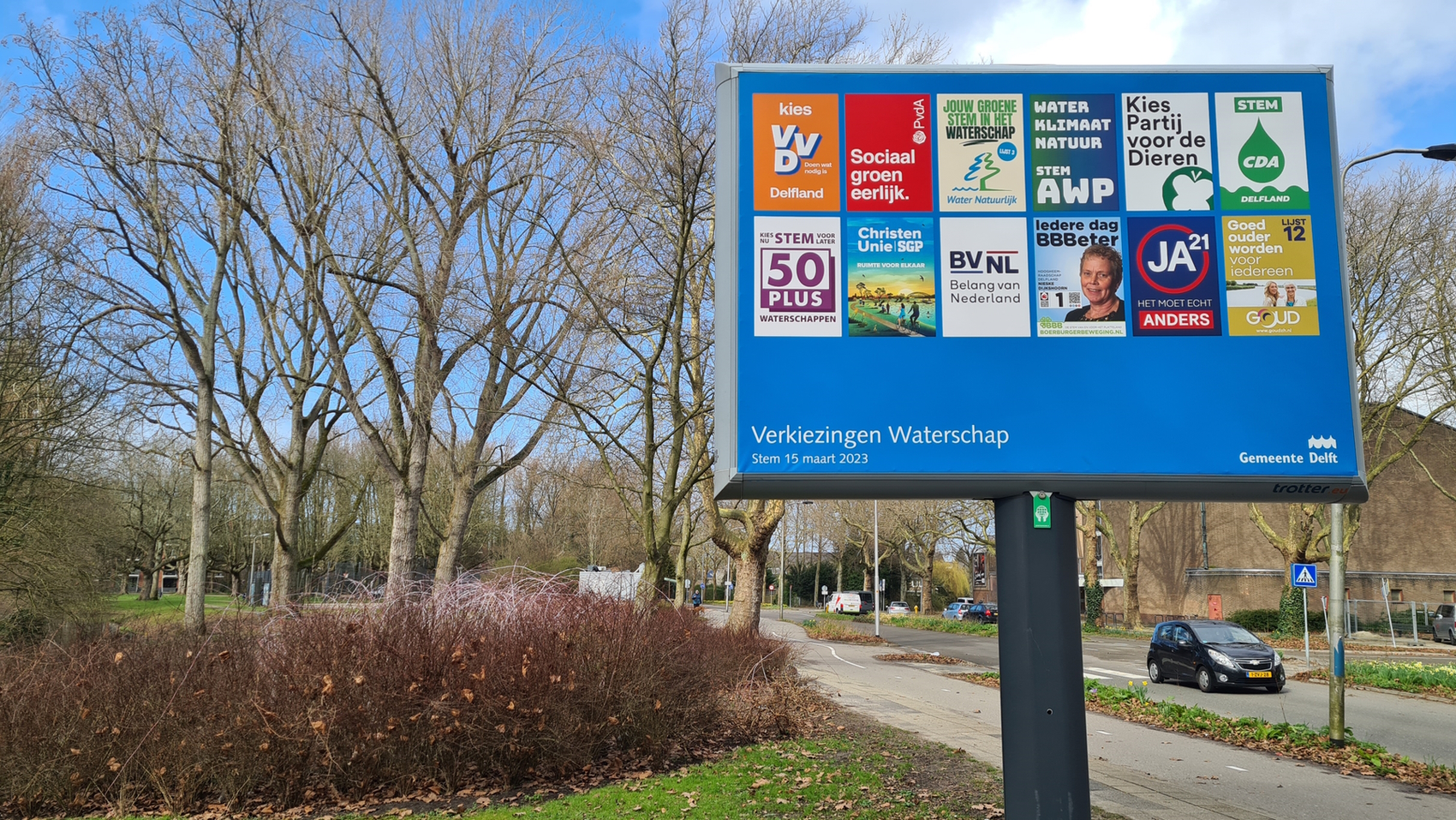We can cast our votes again on Wednesday. Delta discussed three current themes with Erik Mostert, Water Management lecturer. “The next crisis may be the water quality crisis.”
Twelve parties are joining the water authorities election. (Photo: Rob van der Wal)
Elections for the Provincial Council and the water authorities are being held on Wednesday 15 March. For previous water authority elections, Dr Erik Mostert, lecturer and master’s coordinator of the Water Management track (Civil Engineering and Geosciences) always held an election debate for his students. “We invited all the water authorities and they explained their positions,” he says. “If the authorities that did not agree with each other, they could enter into a debate.” He had no time to do this this year. Nevertheless, he is keen to explain why you should vote.
“A water authority is comparable to a municipal council,” says Mostert. “The dijkgraaf (chair of a water authority) is like a mayor, the board the municipal council, and the daily management the board of mayor and aldermen.” Like the municipal council, the water authority also deals with political issues, he explains. “They levy their own taxes and the different authorities have different ideas about the amount.”
Delta discussed the water authority elections through three current issues.
Water quality
“The next crisis may be the water quality crisis,” says Erik Mostert. “All the water in the Netherlands should have met European standards from 2015 onwards. That period has been extended twice in six years, and the Netherlands now really has to meet them in 2027.”
Water authorities can help improve the water quality. They are responsible for the water quality in lakes, ponds and ditches, as well as the urban wastewater that ends up in purification plants. “Water authorities can hand out permits to directly discharge water into surface water, for example if there is no sewer,” says Mostert. They can also improve the ecological water quality of an area by doing things like making rivers meander again and creating ecologically friendly river banks.
“Some water authorities are more ambitious in terms of nature than others and set aside more money for this,” says Mostert. “So your vote for a water authority can help improve the water quality.”
Water problems
“Every water authority stands for preventing water problems,” says Mostert. However, the budget that they have varies, as do the measures that they want to take. “For example you could enlarge the pump stations to pump away more water or build more water storage facilities, depending on the situation.”
He explains that there are standards governing the degree to which an area must be kept flood safe. “But if it is too expensive to meet the standards, you may deviate from them. That too is a political decision.”
Water level
Choosing a particular water level is basically choosing between agriculture and nature, says Mostert. Farmers want low water levels. The ground is then not too swampy and they can use machines to sow and harvest the land. But in the polders, nature needs a high water level. This prevents peat from crumbling and subsidence. When peat bogs dry out and crumble, they release a huge amount of CO2. Apart from this, a low water level causes salination in polders. Further, the wooden foundations of houses rot more quickly when the water level is low, causing the houses to subside. “The water authorities have a lot of freedom in terms of water level,” says Mostert. “There are very few regulations here so it really makes a difference which party you vote for.”
- If you want to know which parties you can vote for in the Provincial Council and water authorities, check out the Stemwijzer (vote adviser, in Dutch).
Do you have a question or comment about this article?
K.S.vanderWal@tudelft.nl


Comments are closed.